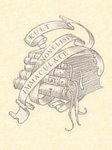I've hit another landmark in Masks.
I'm now in totally new territory, and that feels fabulous and freeing. Well, I'm not going to deviate too terribly from the original plot, but the devil, and apparently temptation and satisfaction, are in the glorious details.
Sometimes a flash of reasoning or experience comes along, or something outside that gives a moment of inspiration. Facing the inevitability of death last night (this happens from time to time) and on this particular night, the fact that I would have to go onward alone, brought in huge waves of inspiration and insight into Mark's needs and pain. He is, more than any other character I've written, desperately alone and when he leaves his emotionally bereft shelter he is even more alone.
So when he's bonded as a jester, he's no longer alone, and that moment became huge. It also became more spiritual, thanks to some ideas that ambled into my brain at a convenient time about the spiritual world and what one possibility might be like, then tweaking that into the Masks universe.
I also managed, for once, to end the chapter on a cliffhanger. I don't have many habits from short story writing, especially since I'm not much good at short story writing, but one habit that clings is the one where you end on a resolution rather than an unresolution. Scenes don't have as much a problem as chapter endings, my chapters being roughly short story length. My mind takes me to the end of the chapter where something has resolved, and I don't continue past the point of resolution because that seems unnatural. I want to end it there and continue onward in the next chapter to the following related idea, sometimes with a transitionary idea that keeps the book unified. I think this habit may also come from essay writing (I think I may be better at essays than short stories but who can ever figure out what they're good at anyway?) where each paragraph is a complete idea that gently leads to the next idea with transitionary sentences. There is a minor resolution in each paragraph, and then the whole essay ends in a complete resolution with maybe a few unresolved questions--they'd better be unresolved for a reason and in there in the first place for a reason if you want a good essay--hanging about for intrigue.
One of my tasks when I go to polish this beastie is to check out, in a mechanical way, beginnings and endings of chapters and look at the structure and length of the chapters. I'm not really looking forward to that. The idea that I might have one less chapter end to fuss with is a relief and a pleasure, and now I can go outside and garden with a sense of a job somewhat done.
Subscribe to:
Post Comments (Atom)







1 comment:
Ooo, I love the idea of examining chapter fronts and backs! I remember how liberating it was to delete entire paragraphs from the beginning of every chapter letter in my thesis story! What joy! What freedom! What wholesale destruction of words! And the letters read much much better afterwards.
So, if you want any help (she says eagerly, holding up her red pen with a fencer's flair) . . .
Post a Comment